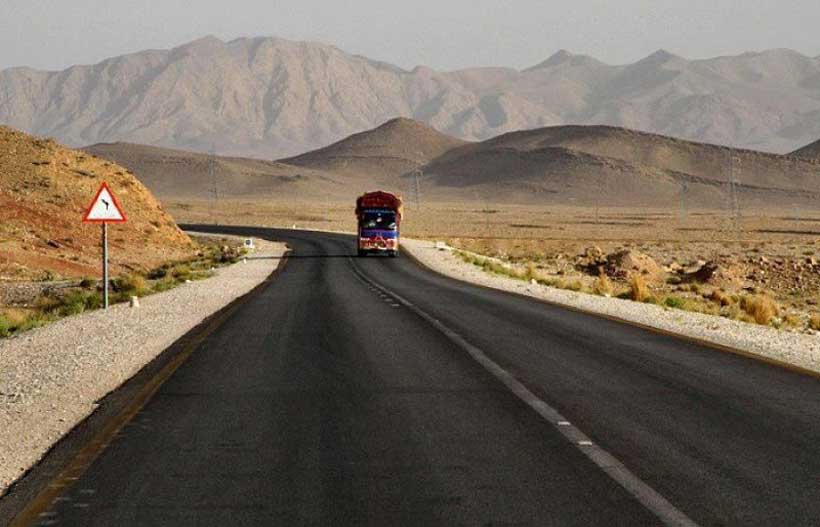
by Hammad Baloch 4 August 2023
The historical backdrop of Balochistan reveals a longstanding challenge for Pakistan, with Baloch sub-nationalist resistance persisting since the country’s inception. However, the emergence of the China-Pakistan Economic Corridor (CPEC) has significantly altered the geostrategic and geo-economic significance of the region, attracting the attention of various stakeholders. Among these players, some are driven by their own agendas, while others, known as “spoilers,” actively seek to undermine the successful implementation of such projects. These spoilers often employ classic tactics of lobbying to hinder project initiation, and if these efforts fail, they resort to more covert means to sabotage progress.
Balochistan, due to its strategic location, has become a focal point for these power struggles. Hostile intelligence agencies (HIAs) from foreign countries aim to exploit existing dissident sentiments within the region. They forge connections with local dissidents, providing tactical support and funding to further their anti-state agendas. This covert orchestration has intensified since the fall of Kabul, manifesting in heightened attacks along the Pak-Iran border, particularly in the vicinity of Gwadar. In response to these challenges, Pakistan’s National Security Committee, led by Prime Minister Shahbaz Sharif, convened a pivotal meeting on April 7, 2023. The gathering, attended by key cabinet ministers, defense officials, and the armed forces’ tri-services chief of staff, aimed to address the escalating terrorist activities and overall security concerns. A resolute decision was made to launch a comprehensive operation, rallying the entire nation and government to eradicate the terrorism menace with renewed determination.
Subsequently, there has been a noticeable escalation in law enforcement efforts within Balochistan, employing an intelligence-based approach to counter the threats facilitated by HIAs. This shift marks a departure from the kinetic-heavy operations of the past, aiming to minimize casualties while still yielding effective results. The adoption of a more intelligence-centric strategy reflects a calculated move towards a cost-effective and strategic response. In a recent article for the South Asia Journal titled “The Arrest of BNA Founder: A Testament to the State’s Commitment to Balochistan’s Peace,” it is argued that a significant nexus exists between Tehreek Taliban Pakistan (TTP) and Baloch sub-nationalist organizations. The law enforcement strategy seems focused on dismantling this nexus, thereby weakening the influence of TTP on the fringes of Balochistan.
The culmination of these efforts came on April 7, 2023, with the apprehension of a high-value target: Gulzar Imam, also known as Shambay, a prominent leader of a Baloch sub-nationalist group. This arrest represented a breakthrough in disrupting the hostile agencies’ network in Balochistan. The momentum continued as security forces executed a three-day intelligence-based operation in the Mach district near Sibbi, resulting in the elimination of two terrorists and the capture of one. The relentless pursuit of these networks reflects Pakistan’s determination to counteract their sabotage attempts on its socioeconomic progress, with CPEC standing out as a primary target.
While the security forces have achieved significant success, it is imperative for the state to capitalize on this opportunity by engaging and empowering the local population. The involvement of Baloch youth, often disillusioned and fueled by underlying grievances, must be addressed through meaningful dialogue and socio-economic development. This necessitates building bridges with Balochistan’s residents, particularly countering the influence of entrenched feudal lords who perpetuate dissatisfaction for their own gain. The state’s stance is not adversarial toward dissidents; instead, it seeks to mitigate misunderstandings and foreign influences. Nonetheless, individuals like Gulzar Imam, who fall under the sway of external handlers, hinder these efforts by inciting violence and promoting an anti-state narrative. A potential solution lies in adopting an approach akin to Disarmament, Demobilization, and Reintegration (DDR), facilitating the reintegration of misguided youth into society while fostering a sense of development and progress.
In conclusion, the situation in Balochistan remains complex, with diverse elements at play, ranging from geostrategic considerations to socio-economic disparities. The emergence of CPEC has added a new dimension to these dynamics, attracting both positive and negative attention. Pakistan’s recent security operations underscore a commitment to neutralizing threats, but the ultimate success lies in a holistic approach that addresses the root causes of dissent and promotes the region’s overall well-being.
